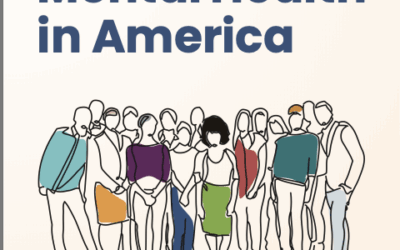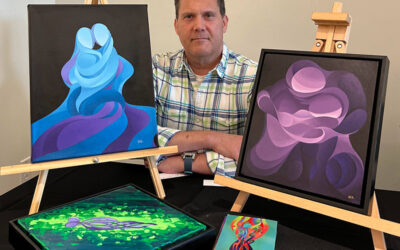**Trigger Warning: Racial/Ethnic Violence**
I would like to preface this post by mentioning that I am a U.S.-born citizen who attends school in the United States, and I am writing this as an ally to the international/BIPOC community. I stand in solidarity with combating xenophobia and racism as COVID-19 has fueled both systems of oppression. Unfortunately, this is not the first time our country has exhibited blatant racism and xenophobia, but the global pandemic has helped these awful sentiments resurface.
As a white, American-born person, I cannot and will never be able to speak from experience, but have read on citizenship issues and learned from activist readings and movements sparked across the country’s history to protect the rights of immigrants and international students. In learning about the mental health implications of racism and violence—as I discussed in my third blog post—I want help to amplify marginalized voices and spread awareness through this blog.
Furthermore, I would like to mention that racism and xenophobia impact people of all different racial and ethnic groups and America has a brutally long history of oppressing non-white people. In this post, however, I will focus on the blatant anti-Asian sentiment the world has exhibited upon the outbreak of COVID-19. I also recognize that Asia is a massive continent filled with different countries, languages, and cultures and that Asian is a broad term. Among Asian people in the U.S. alone, approximately 6.2 million are of Chinese descent, 3.9 million of Filipino descent, and 3.3 million of Indian descent, followed by 1.9 million of Vietnamese descent, 1.8 million of Korean descent, and 1.3 million of Japanese descent.
As the coronavirus pandemic originated from Wuhan, China, xenophobic discrimination and violence have erupted in the United States against Asians, Asian-Americans, and people of Asian descent. President Trump referred to COVID-19 as the “Chinese virus” and Secretary of State Mike Pompeo referred to it as the “Wuhan virus,” encouraging xenophobic hate speech around the country. Albeit the virus has no racial or ethnic preferences, the anti-Asian sentiment that has arisen has made China and other Asian countries appear as the scapegoat for COVID-19. In other countries, too, some have used immigrants and people of Asian descent to blame for the spread of the virus. Even Asian doctors, nurses, and health care workers are facing racism and discrimination from patients and other people in their fields. There has been very little government response or support around the world to protect Asian people from violence and hate crimes, despite the increased risks of racist attacks.
An article from Human Rights Watch published in May outlines just a few of the heinous acts of violence and discrimination against Asian people around the world. Here are some examples:
- “In Italy, the civil society group Lunaria since February has collected over 50 reports and media accounts of assaults, verbal harassment, bullying, and discrimination against people of Asian descent.”
- “In the UK, Asian people have been punched in the face and taunted, accused of spreading coronavirus.”
- “Two women attacked Chinese students in Australia, punching and kicking one and yelling ‘Go back to China’ and ‘you fucking immigrants.’”
- “Two men attacked a Chinese-American in Spain and beat him so badly that he was in a coma for two days.”
- “A man with a knife attacked a Burmese family in Texas.”
- “In Africa, there have been reports of discrimination and attacks on Asian people accused of carrying coronavirus, as well as foreigners generally, including in Kenya, Ethiopia, and South Africa.”
- “In Brazil, the media have reported harassment and shunning of people of Asian descent.”
It is no surprise that these brutal acts of racism and xenophobia have deep implications on mental health, both for those experiencing the direct acts of hate and for the greater community. During the times of COVID-19 and prior, it is no surprise that marginalized groups lived with collective and individual traumas. Whether it be individual hate crimes committed against Asian people or intergenerational traumas from the racist immigration acts of the late 19th Century, the Asian-American communities in the U.S. face unique mental health challenges. In addition to the overt acts of xenophobia—although many Asian Americans are born and raised in the U.S.—Asian communities are stigmatized and mental health is often not discussed. The American Psychological Association presented data from a study conducted in 2010 by the National Latino and Asian American Study (NLAAS) stating:
“Asian Americans have a 17.30 percent overall lifetime rate of any psychiatric disorder and a 9.19 percent 12-month rate, yet Asian Americans are three times less likely to seek mental health services than Whites. According to a study conducted by Abe-Kim et al., only 8.6 percent of Asian-Americans sought any type of mental health services or resource compared to nearly 18 percent of the general population nationwide (Spencer et al., 2010).”
According to this same study, the most common sources of stress for Asian Americans included:
- Parental pressure to succeed in academics
- Discussing mental health concerns is considered taboo in many Asian cultures and as a result Asian Americans tend to dismiss, deny or neglect their symptoms
- The pressure to live up to the “model minority” stereotype (a view that inaccurately portrays Asian Americans as successfully integrating into mainstream culture and having overcome the challenges of racial bias)
- Family obligations based on strong traditional and cultural values
- Discrimination due to racial or cultural background
- Difficulty in balancing two different cultures and developing a bicultural sense of self
When acts of violence such as those perpetrated amidst the COVID-19 pandemic and when subtle acts of racism are ignored, people of Asian descent face unique mental health challenges. Despite the heightened rates of racial and ethnic violence, Asian Americans remain less likely to seek out support services due to cultural notions toward mental health; furthermore, the federal government has yet to issue security measures to protect this vulnerable population.
As I described above, I stand in solidarity with the Asian and Asian-American community right now and always, and I will continue working to be an anti-racist ally. If you identify as white and even if you do not commit overt acts of racism in daily life, it is important to check your privilege and the racism/xenophobia within yourself. Since this country’s inception, white Americans have profited from the exploitation of non-white people, and it is more important than ever during times of COVID-19 to combat oppression in all its forms.
For Asian folks seeking support and resources during this horrific time, I have compiled a comprehensive list of services, hotlines, and information below. Systemic and institutionalized racism and xenophobia can have psychological and physiological impacts on minority groups.
For white allies seeking tools to become an anti-racist activist and stand up against injustice, I have compiled resources below for being anti-racist during the global pandemic and beyond. Please feel free to share these resources to help stand up against racial violence against marginalized communities and/or to become a better ally.
Hotlines and Direct Support Mental Health Resources for Asian American & Pacific Islander Communities:
National Asian American Pacific Islander Mental Health Association (NAAPIMHA):
- This resource provides mental health and behavioral services for Asian Americans, Native Hawaiians, and Pacific Islanders here
- COVID-19 resources for Asian Americans are available here
Southeast Asia Resource Action Center:
- The SEARAC has compiled a comprehensive list of COVID-19 Rapid Response Resources for Asian Americans in each U.S. state here
Asian Americans Advancing Justice:
- Hate crime reporting form can be found in multiple languages here
Asian Therapists in Virginia:
- List from Psychology Today of Asian therapists across the state of Virginia
Asian American Suicide Prevention & Education: 24/7, confidential, and free
- If you or someone you know is concerned about the risk for suicide, call the Asian LifeNet Hotline at 1-877-990-8585 (available in Cantonese, Mandarin, Japanese, Korean, and Fujianese)
APALA COVID-19 Community Fund:
- Fund to help workers and their families with direct financial support, with a one-time payment of $500 to support families who are ineligible for other forms of government assistance due to immigration status or other barriers
- The application can be accessed here
VictimConnect Hotline: confidential, free, Monday – Friday from 8:30 am – 7:30 pm ET
- Call 1- 855-4-VICTIM or live chat here for information or assistance in locating services that can help you or a loved one after experiencing a hate crime
Virginia Attorney General’s Office, Mark R. Herring:
- If you need assistance, please contact human_rights@oag.state.va.us and 1-855-NOH8VA1(1-855-664-8821).
- NO HATE VA has resources for victims of hate crimes, housing and employment discrimination, harassment and intimidation, and physical injuries in Virginia
Crisis Text Line: 24/7, confidential, and free
- Free texting service that can be accessed by texting HOME to 741741 for free, 24/7 crisis counseling
Mental Health America:
- Free online screening tools for mental health conditions here
- General resource list for COVID-19 and mental health here
- The Mental Health America of Virginia Warm Line is available at 1-866-400-MHAV (6428) for mental health resources and referrals in Virginia
Therepeasy:
- Help get matched to an online mental health provider here
- Totally free, accessible, and instant matching with a therapist
American Psychological Association Help Center:
- List of national and statewide hotlines for support here
- Search tool to find a psychologist near you for longer-term help here
National Suicide Prevention Lifeline: 24/7, confidential, and free
- Call 1-800-273-8255 for distress, prevention and crisis resources for you or your loved ones, and best practices for professionals or online chat here
Mental Health and Self-Care Resources for Asian Americans:
- Asian American Psychological Association, with articles and resources for Asian American psychologists and people looking for mental health services
- “Stay Proud: Being Asian American Is a Good Thing”, by Alicia del Prado Ph.D. in Psychology Today
- The May Lee Show #12 – “Coronavirus Crisis: How Asians Can Protect Themselves”, focuses on security and psychology
- “Surviving Racism Amidst COVID-19”, by Yin J. Li in Medium
- “Self-Care Tips For Asian Americans Dealing With Racism Amid Coronavirus”, by Brittany Wong in the Huffington Post
- COVID-19 Resources for South Asian Americans, available in several languages
- Resources for Asian-Owned Small Businesses, by John Suarez from CVM
- Asian Pacific American Labor Alliance, COVID-19 Resources and guidance for worker protections
- The National Queer Asian Pacific Islander Alliance (NQAPIA), a federation of lesbian, gay, bisexual, and transgender (LGBT) Asian American, South Asian, Southeast Asian, and Pacific Islander (AAPI) organizations
- Indiana University Bloomington Asian Culture Center, with resources for fighting racism and reporting hate crimes in COVID-19 times
- The New York Coalition for Asian American Mental Health (NYCAAMH), with lists of resources for COVID-19 relief and mental health services
- Asian Americans for Civil Rights and Equality, focuses on long-term movement building, capacity infrastructure, and leadership support for Asian Americans and Pacific Islanders committed to social justice.
Useful Articles, Links, and Resources for Allies:
- BYSTANDER INTERVENTION TRAINING TO STOP ANTI-ASIAN/AMERICAN AND XENOPHOBIC HARASSMENT, by Hollaback!
- “Confronting Anti-Asian Discrimination During the Coronavirus Crisis”, by Ed Park in the New Yorker
- Code Switch Podcast: “When Xenophobia Spreads Like A Virus”, from NPR with Natalie Escobar
- A Guide to Responding to Microaggressions, by Kevin L. Nadal
- Asian American/Pacific Islander Communities And Mental Health, from Mental Health America National
- “Mental Health Among Asian Americans”, by Koko Nishi from the American Psychological Association
- “How to be an ally for Asian Americans facing racism amid COVID-19”, by MPRNews
- “The long history of US racism against Asian Americans, from ‘yellow peril’ to ‘model minority’ to the ‘Chinese virus’”, by Adrian de Leon from The Conversation
- “Fear sent her Chinatown restaurant spiraling. The challenges to reopening feel ‘just impossible.’”, by Hannah Knowles and Kim Bellware from Washington Post
- Eight Asian-American, Pacific Islander Groups to Donate to, from NBC News
- “Why we must talk about the Asian-American story, too”, by Brando Simeo Starkey from The Undefeated
- Asian Americans PBS Segment, about the history of identity, contributions, and challenges experienced by Asian Americans
- “I don’t scare easily, but COVID-19 virus of hate has me terrified: Reporter’s Notebook”, by Nydia Han from ABC
- Asian American Organizations You Need to Know, a list of 20 organizations updated in May 2020 from Diversity Best Practices
Anna Marston, Intern
Mental Health America of Virginia



